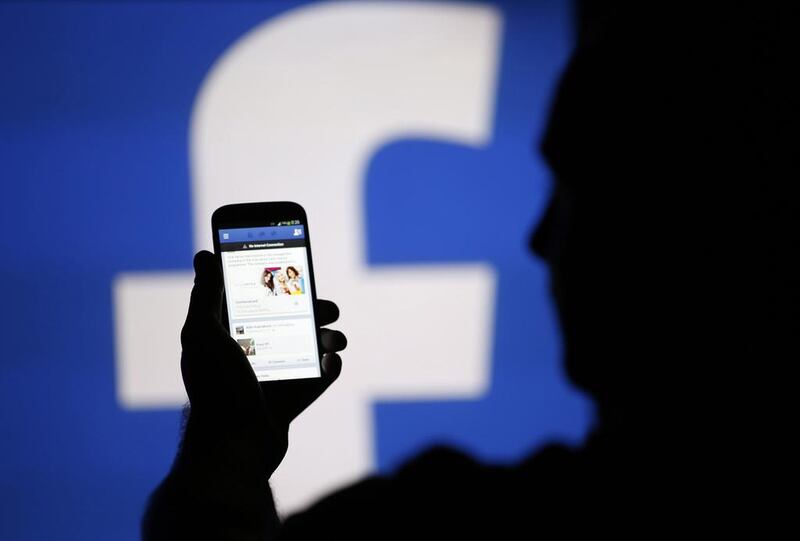Click on to the “secret” Pantsuit Nation Facebook group – a Hillary Clinton support community of sorts – and the first post you’ll find is one written by the administrators.
Part of the post lays out the dos and don’ts of the group: DO post positive stories; DON’T post memes; DO invite like-minded individuals and report posts that seem “out of line”; DON’T share the stories, outside your personal Facebook timeline; DO go high, DON’T be mean.
Under this, one of the first comments states: “Absolutely none of my posts are being approved and I am only sharing ways to get involved for action. Is this page not going to organise for advocacy and change?”
The woman is not alone – it seems the moderators are keeping close tabs on whom they allow to post and what. One woman even claims her daughter’s letter to Donald Trump was also rejected.
Meanwhile, over at the public “Donald Trump for President group”, there is little in the way of what can and cannot be discussed. In fact, it’s pretty much a free-for-all.
The first post displays an article about a woman who was arrested at the anti-Trump protest in Ft Lauderdale, Florida, after she threw water on Trump supporters. The first comment implores: “Stop protesting already! TRUMP is AWESOME! Go back to work and support our President or get out of our country.”
Similar commentary continues down the thread.
These two groups are but a small sampling of the kinds of online communities, or so-called “social media echo chambers” formed during the election cycle.
Following Trump’s win, many are putting his victory down to the fact that, for the past eight years, both sides of the political aisle have confined their world view to these online bubbles.
Mark Zuckerberg recently denied on a Facebook post accusations that his social media platform strengthens echo chambers. Instead, he claims that “people are actually exposed to more diverse content on Facebook and social media than on traditional media like newspapers and TV”.
A study conducted earlier this year, however, by Italian social scientists Walter Quattrociocchi and Antonio Scala, and American legal scholar Cass R Sunstein, showed different. The three focused on how Italian and US Facebook users interacted with two narratives: conspiracy theories and science. The findings demonstrated that Facebook users are, in fact, highly polarised, and this, in turn, created “largely closed, mostly non-interacting communities centred on different narratives, ie echo chambers”. Moreover, users showed a tendency to look for and receive information that backed their preferred narrative and to “reject” information that went against their beliefs.
When it comes to political debate though, this argument appears either true or somewhat true depending on the strength of an individual’s political opinions. In a 2014 study, independent US-based Pew Research Centre examined whether media habits were affected by political views and vice versa.
It found that 47 per cent of consistent conservatives cited Fox News as their main source of news about government and politics, and 88 per cent trusted Fox News whilst being distrustful of other news sources. The same group are more likely to hear views that mirror their own on Facebook and more likely to discuss politics with their friends.
Stepping to the left, liberals rely on more news outlets, are more likely to trust news sources and are less likely to “defriend” someone because of conflicting views. It said: “It is virtually impossible to live in an ideological bubble. And many consistent conservatives and liberals hear dissenting political views in their everyday lives.”
Whatever the truth, post Trump’s election, we must consider the value of such online groups and whether they actually offer opportunities for tangible change.
Pantsuit Nation, for example, has made several small calls to action since Trump’s victory: the most significant being the change.org petition to get Clinton elected on the grounds of her winning the popular vote; ways to donate to potentially at-risk organisations like Planned Parenthood; and suggestions on how to act as an ally to communities that are increasingly becoming targets of hate crimes.
Yet, it largely remains a sounding board for people to discuss their thoughts and lick their wounds following the election.
Donald Trump for President, and even Donald Trump’s own Facebook page, offers little in the way of direction – aside from the occasional “build the wall!” comments. The comments are a mix of anger towards liberals and jubilation that Trump won.
Much like the Pantsuit Nation, rather than acting as a useful means to mend the political and social divide, these groups appear to validate followers’ opinions.
But one thing is certain: widespread demonstrations in cities across the United States after Trump’s win demonstrate a divide in real world America that must be bridged.
If America intends to mend this schism, people need to emerge from the safety of their online bubbles to discuss the issues that matter most to them, both online and in person. It won’t be easy, and it’s not always going to be comfortable, but for the sake of progress, it’s absolutely imperative.
Ashley Lane is assistant features editor of magazines at The National.





